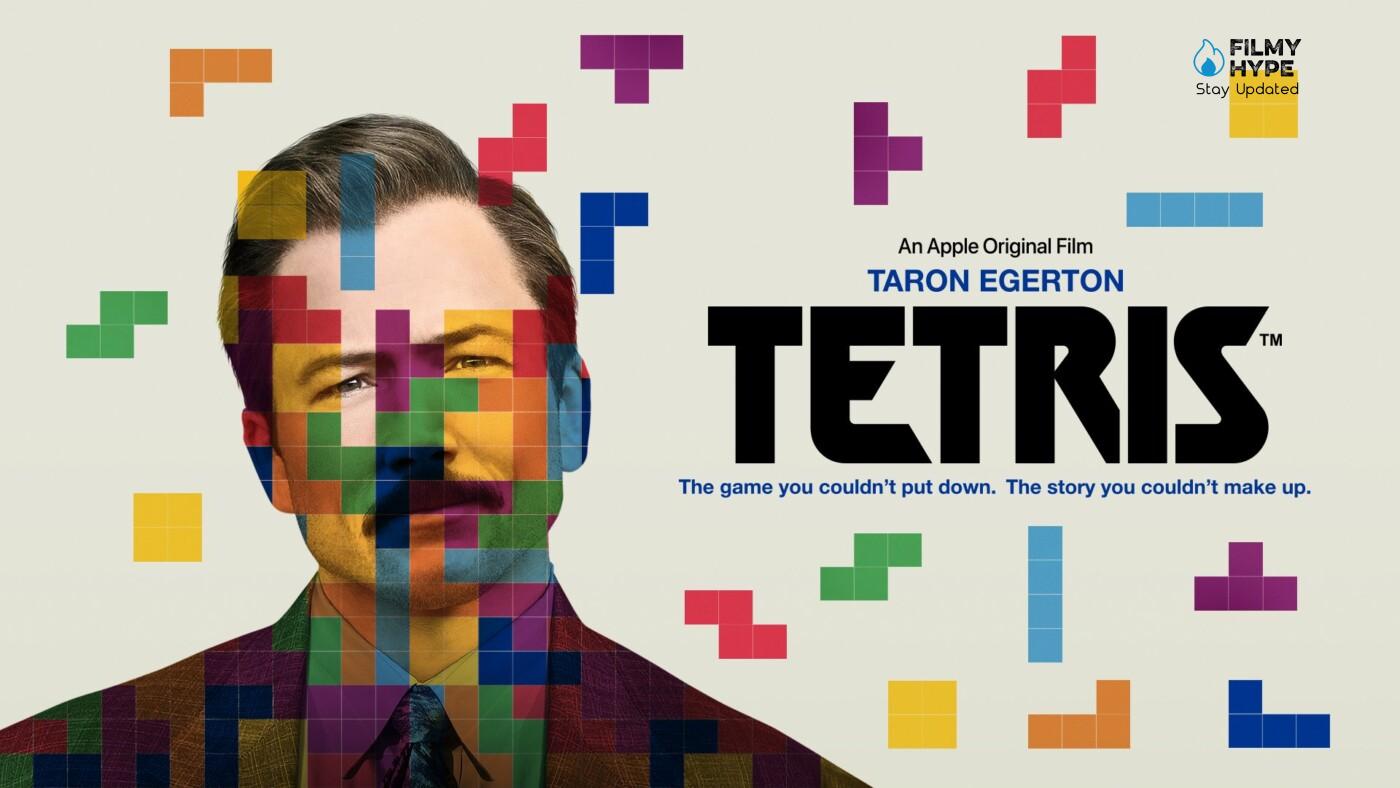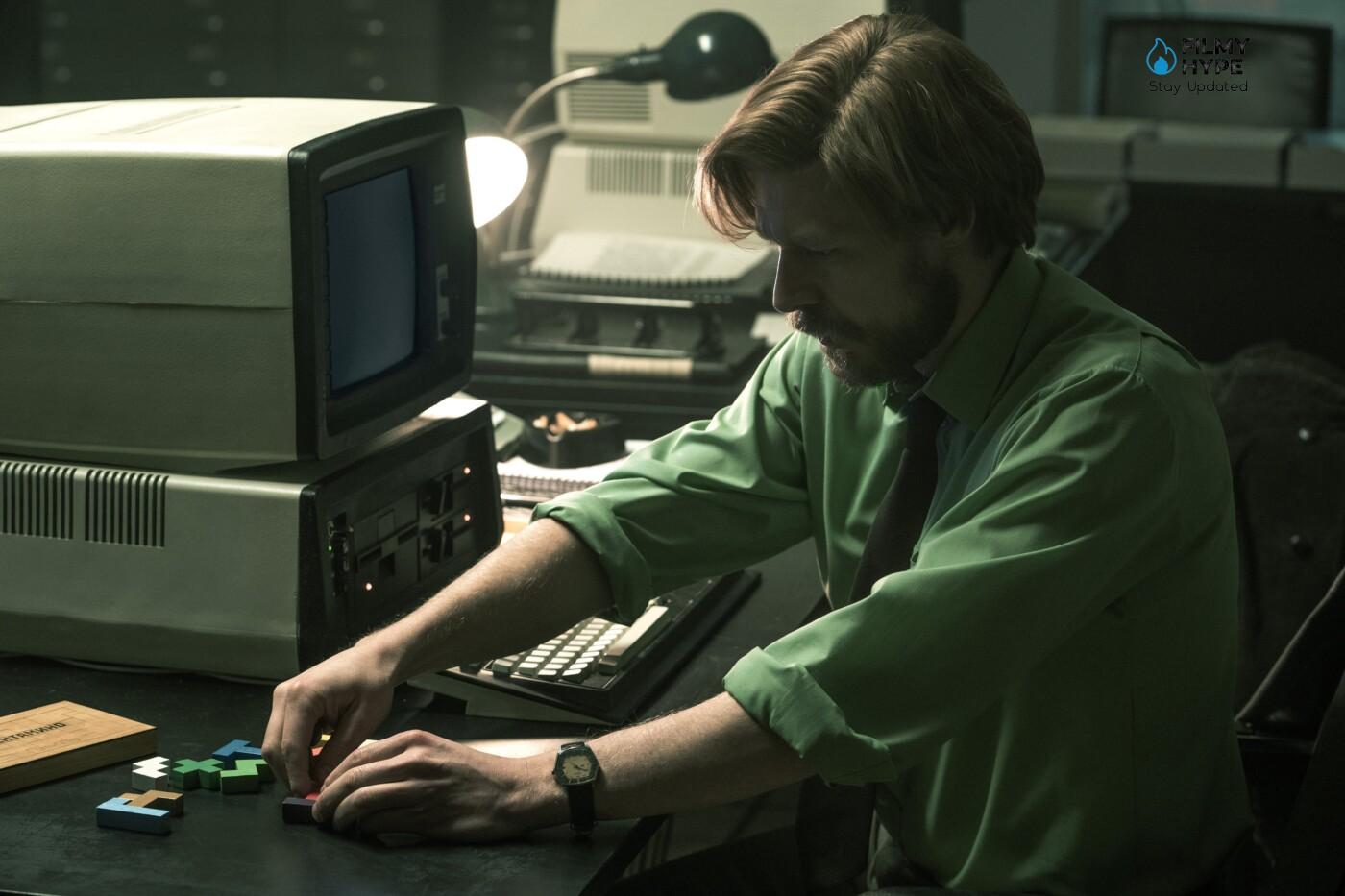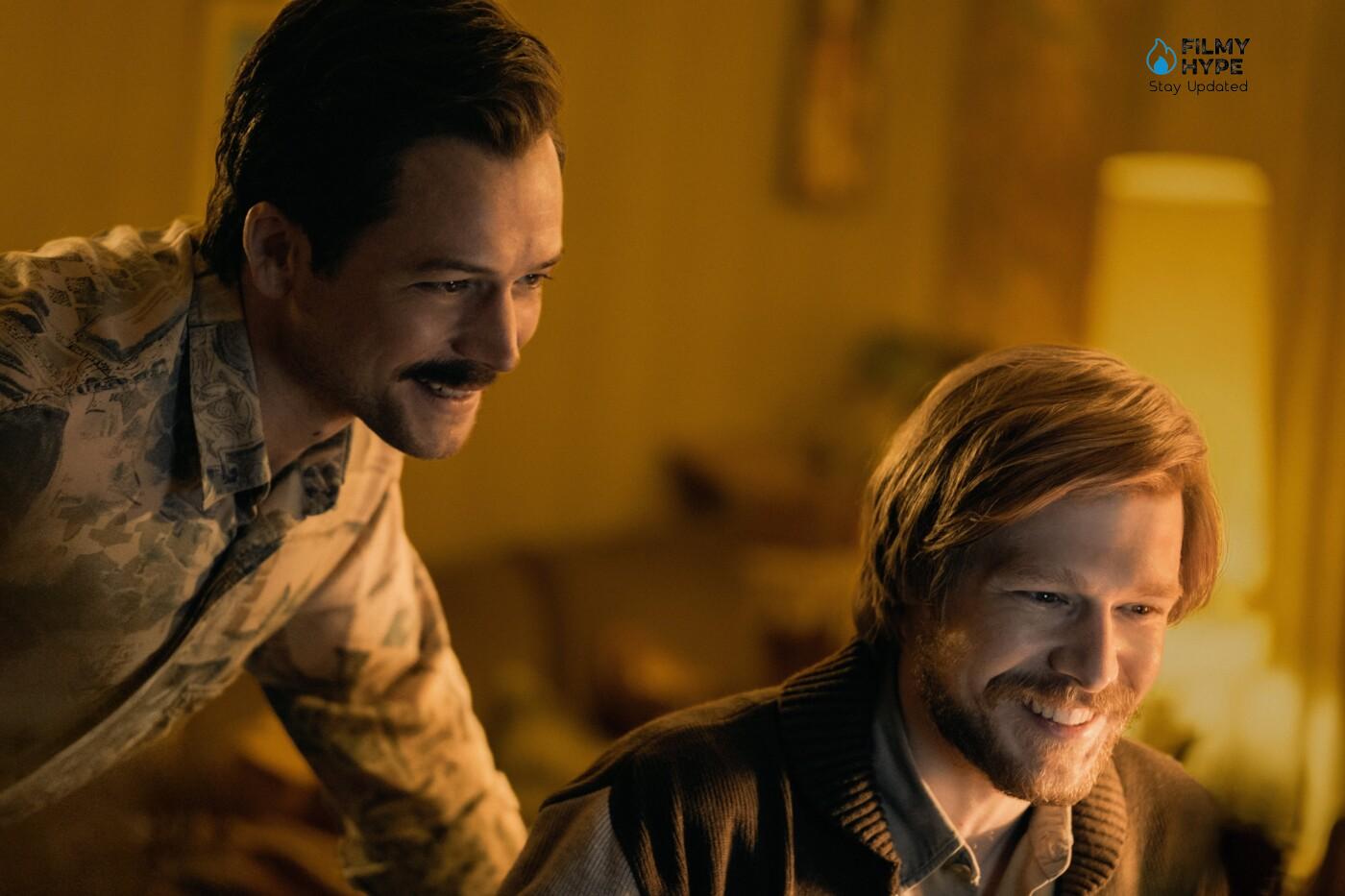Tetris Review: Apple Tv+ Film Between Spy Story and Legal Drama
Cast: Taron Egerton, Toby Jones, Nikita Yefremov
Director: Jon S. Baird
Streaming Platform: Apple Tv+
Filmyhype.com Ratings: 3.5/5 (three and a half stars)
The birth and diffusion of one of the most famous video games in the world represent a truly curious and singular story, perfect for a film, also given the surrounding Cold War context. And this is the core of the feature film directed by Jon S. Baird, Tetris, of which we present the review. This Apple Original Film, available on Apple TV+ from March 31, tells the story of the famous video game, from its Soviet origins to the almost paradoxical battle for its legal rights and its tormented distribution. The characterizing aspect of this story is undoubtedly the historical period: we are in fact in 1985, still in a Cold War climate, in which a simple acquisition of the rights to a video game by the Americans appears to the Soviets as a dangerous flaw in the Union which could contribute to its imminent collapse.

Who would have thought that the story of the sale of video game rights could turn into an epic and entertaining tale, an adventure from which it is almost impossible to look away for its almost two hours of duration? It becomes possible when the videogame in question is perhaps one of the most exciting of all time, which has a uniquely creative and distributive history behind it: we are talking about Tetris, which at the time was a real revolution in the videogame world and which remains It’s now one of the most polar games ever. As we will see in this Tetris review, the film directed by Jon S. Baird and starring an always excellent Taron Egerton will take us from Japan to the United States, from England to Cold War Russia. A story that is unexpectedly compelling and that proceeds at a frenetic pace, perfect for transforming a story of this type into the ideal material for a feature film. Perhaps at certain points, the plot gets a little confused, too rich in elements, but the vision remains particularly pleasant until the end.
Tetris Review: The Story Plot
Henk Rogers (Taron Egerton) is a young (and penniless) video game programmer and founder of Bullet-Proof Software. We meet him for the first time in 1988 when at a convention in Las Vegas he discovers for the first time Tetris, a video game created by a Russian programmer. Henk is fascinated by it and decides to do everything to buy the rights and distribute them all over the world. However, this is not a simple mission, the game was programmed in the impenetrable Russia of the Cold War, and the license was purchased, but not in a completely legal way. As if that weren’t enough, Bullet-Proof Software needs funds to carry on an entrepreneurial venture of this magnitude, and he will have to go to a bank to get a loan.
The protagonist of Tetris is the entrepreneur of Dutch origin Henk Rogers (Taron Egerton), who grew up in the United States but lives in Tokyo with his wife and daughter. While trying to pitch a new game of chess at a video game show in Las Vegas, Henk comes across the simple but challenging game Tetris. Sensing that it could become a great success and discovering that no one has bought the rights in Japan, he decides to propose a partnership with Nintendo, acquiring the rights to the game for a new portable console, the Gameboy.

The operation will not prove so simple, since part of the rights appears to be owned by other businessmen. These are Robert Stein (Toby Jones), who scouts for the coolest games created in Eastern Europe, and Robert Maxwell (Roger Allam), owner of a vast telecommunications empire. Henk realizes that the best solution to the problem is to fly to the Soviet Union to meet the creator of Tetris and bargain directly with the Soviets. Here Henk will have to face a ruthless battle with his business rivals, but also with the paradoxes and contradictions of Communism, which in the late 1980s is one step away from destruction.
Tetris Review and Analysis
Tetris, after a perhaps less successful initial part, manages to find the right rhythm and to completely involve the viewer in the narration. If the first act, the one that introduces us to the characters and the story of the game, is a bit too hasty, as the vision progresses, the screenplay manages to find the right pace, especially when we move to Russia and the protagonist is forced to fight with the party bureaucracy and deal with the interests of the individual parties involved. The use of 8-bit graphics to tell the story and to introduce the most explanatory moments is initially excessive and rather redundant, but in the second part of the film, it is not abused and therefore becomes a more effective and decidedly spot-on narrative ploy in a story of this kind.
Taron Egerton does his best in the role, bringing to the screen storytelling and charming Henk Rogers, but at the same time endowed with great honesty and exuding passion for his profession. The choice of a versatile actor like Egerton is perfect for the role; in fact, the actor is always credible and is capable with his charisma of involving the viewer even more in the story. The supporting cast is also excellent, even if for reasons of space it can only shine a little less than the protagonist. To stand out are Toby Jones and above all Nikita Yefremov in the role of Aleksej Leonidovič Pažitnov, inventor of the game who will later form a deep friendship with Henk.
Tetris is not an original story of the video game, but the story of how it was marketed, a story made up of numerous intrigues, unscrupulous characters, and articulated subterfuges. A story that lends itself very well to becoming material for a spy story with a more than apt historical setting. Screenwriter Noah Pink succeeds in this endeavor, respecting all the rules of the film genre (also having fun mixing them with something else) and outlining an interesting character like Rogers. The protagonist is a businessman with a heart of gold, energetic and charismatic, but determined to do the right thing and get what he wants honestly. The goal is money, this is not hidden, and the character is willing to put his life at risk to achieve the set goal.

Aiming mainly to create a work of entertainment and to highlight the grotesque and the absurd that is hidden in this story, Baird and Pink indulge themselves with a mix of genres that ends up being one of the identifying elements of Tetris and also one of its merits. In fact, in an almost harmonious balance the biopic, the spy story, the financial thriller, the family drama, and the comedy coexist. Action scenes mix with videogame inserts, with 8-bit graphics that liven up the adrenaline-pumping sequences. Furthermore, the film is divided into levels, just as if we were in a video game. A playful and intelligent way to tell a historical story with grotesque implications, and therefore the most suitable for the situation.
Positive elements can also be found in the work of the cast and director. Taron Egerton is perfect in the role, bringing out all the characteristics of his character, and giving us an appreciable immersive performance. With this test, Egerton reconfirms himself as a versatile actor, able to show his skills both in comic and dramatic moments. The performances of the other actors were also convincing, from the better-known Toby Jones and Roger Allam to the less famous Nikita Yefremov, Oleg Shtefanko, Igor Grabuzov, and Sofia Lebedeva. The direction of Jon S. Baird, on the other hand, is careful to enhance the reconstruction of the period, to contrast the liveliness of the 8-bit graphics with the giant and sad Soviet buildings, and to give us a few eighties nostalgia (accompanied by well-loved songs of the period).
Tetris Review: The Last Words
To conclude this review of Tetris, the film proves successful in providing entertainment from a story that could be of interest to few, bringing into play interesting characters and perfectly underlining the grotesque and the absurd that lies in this challenge between the Americans and the Soviets not on military matters, but on a banal video game. There is not only a desire to entertain and dazzle the viewer with pop material but also an intent to show the contradictions of communism and the evils of capitalism. Exaggeration can be found in the belief that Tetris contributed to the end of the Soviet Union, but this is part of a spectacularization and reworking of real historical events and in part, it can be forgiven.







